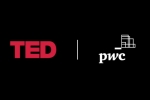By Dion Shango, CEO PwC Southern Africa
The South Africa I grew up in during the 1980s was very different from the “Rainbow Nation” of today. It was also a very challenging time for the country’s female talent to achieve their full potential – especially if they happened to be black. Put simply, women had to work tremendously hard to achieve success, my mother included. And while much has changed over the years – both in our country and our businesses – we can still see stark imbalances with regard to gender equality.
As the 10th edition of our Non-Executive Directors’ Report highlights, there are many challenges facing the independence of women and their individual rights. And until we reach a time when appointing the best qualified candidate becomes the only criterion for any recruitment decision, the unfortunate reality is that we are unlikely to see true equality of opportunity in the workplace.
The challenges to achieving this run deep. Despite the growing numbers of women entering the workforce, there’s still a widespread assumption that women will opt out of the careers to start a family. While our previous reports have already exposed this view as a myth, such preconceptions all too often shape reality – and our Winning the fight for female talent research shows that 44% of females in South Africa feel such stereotyping has resulted in recruitment processes that are biased in favour of men.
Given findings like these, it’s imperative that we start to dispel such myths, and focus on finding the skills needed for a job rather than giving in to unconscious biases.
Especially when South Africa is full of talented women with fierce career ambition. In fact this research highlights that women in South Africa identify opportunities for career progression and competitive pay as their top two attractive traits. And women in South Africa who have recently changed roles, said a lack of opportunities for career progression was the top reason they left their former employer.
I’m fully committed to supporting this change. In South Africa, I’m proud to be a local market impact champion for UN Women’s HeForShe movement. I’ve also pledged to increase the proportion of our procurement spend with female-owned businesses to 20% in the next three years; to profile our female leaders internally and externally; and to ensure that all PwC staff within the Southern Africa region complete the global Building Gender IQ eLearn module. A module PwC co-developed with UN Women that seeks to educate people around the world on the negative impact of gender stereotypes and the importance and benefits of gender diversity in the workplace and beyond.
While these efforts continue, the unfortunate truth is that women continue to remain underrepresented at every level of the corporate pipeline in almost every country in the world, with the gap becoming more pronounced as you move up through the levels of seniority.
It’s truly deplorable that progress has been so slow, and even more alarming that – according to the World Economic Forum – it will take 170 years for gender equality to be achieved in the global workforce at the current rate of advance. As a father of two daughters, 170 years is far too slow for me – and I’ll be taking every action to accelerate this pace of change.
Whatever the statistics say, it’s self-evident that women represent an increasingly vital talent pool in the workforce. CEOs and business leaders are intensifying their female recruitment efforts and positively striving to achieve a more equal gender balance at more senior levels. Those who succeed in doing this will not only win the war for the best talent – of both genders – and overcome the challenge of today’s skills crunch – they’ll also gain competitive advantage in the marketplace.




© 2017 - 2024 PwC. All rights reserved. PwC refers to the PwC network and/or one or more of its member firms, each of which is a separate legal entity. Please see www.pwc.com/structure for further details.












